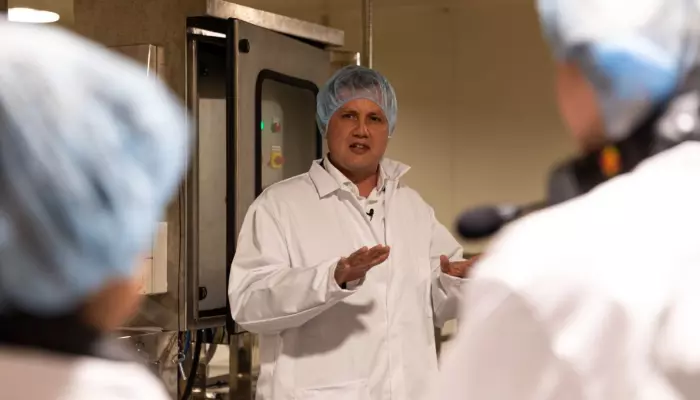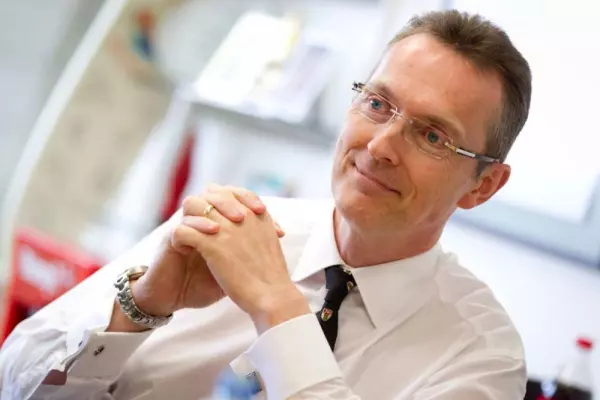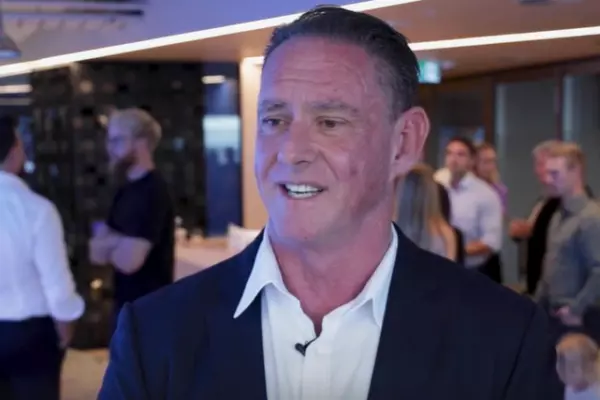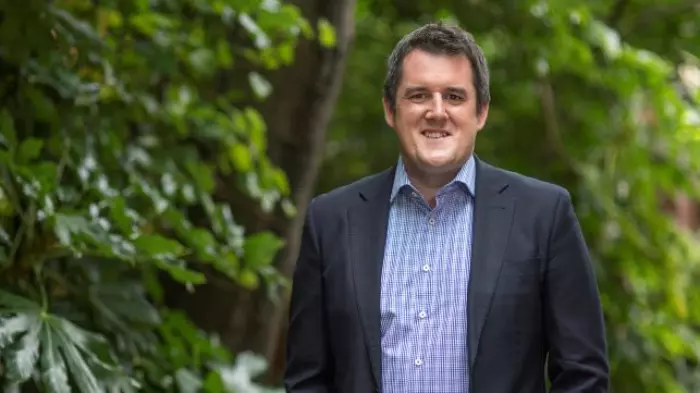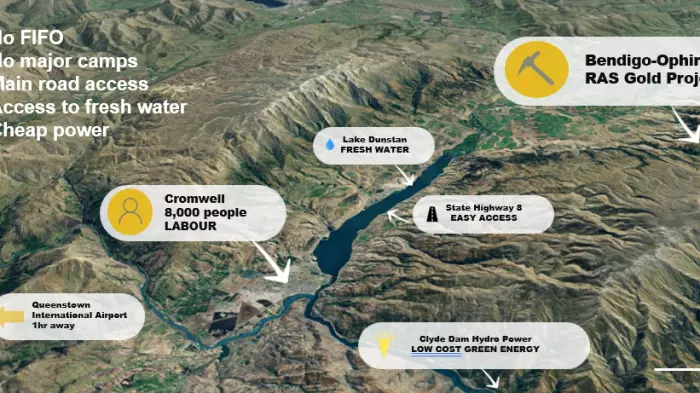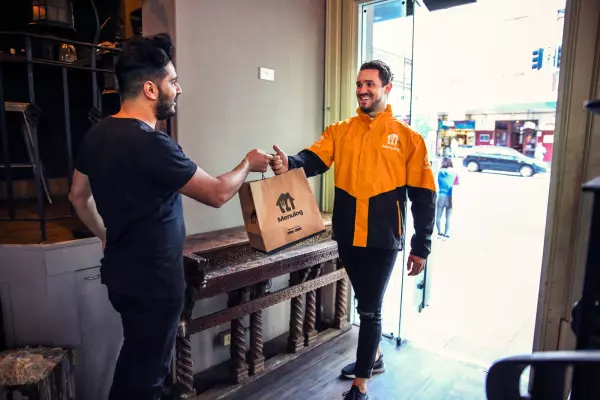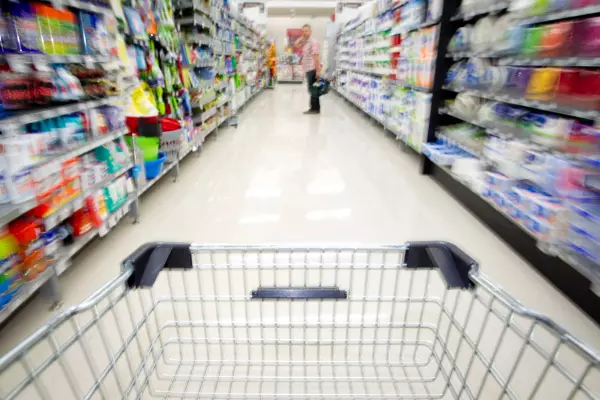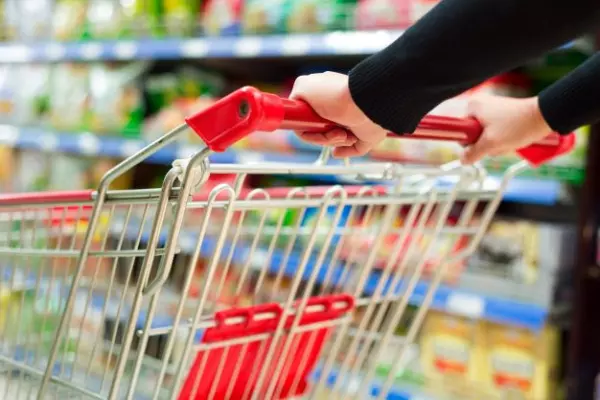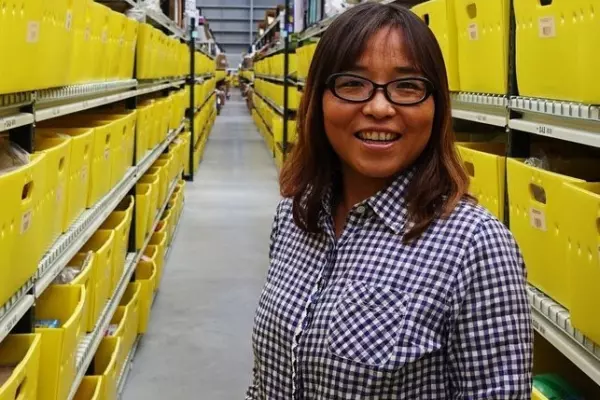You probably know its bottles. They’re often next to the coffee machine in a cafe containing flavoured syrups to upgrade (or downgrade depending on your preferences) your coffee from a plain old espresso to something with a little more oomph.
NZ company Shott Beverages also sells its products in the supermarket under the Quarterpast label and direct to consumers through its website.
In the grocery store, you might better know it for its fruit syrups, with its lemon, ginger and honey offering a winter stalwart.
The company is also an exporter selling its products in more than 20 markets, having started in South Korea where its coffee-loving populace, thanks to the strong American influence, sees its flavours as a popular addition to the cafe culture, says chief executive David Shearer.
The company, majority owned by Beverage Holdings, which is majority owned by Jarden co-founder Bryan Johnston and Alan Lee, opened its new factory in Massey, Auckland on Tuesday.
Shearer owns 4.9% of the business, while founders Simon and Tamar Louisson hold 12.05%.
Shearer said the new plant will accelerate production after grinding through regulatory approval processes in the markets it wishes to dominate.
Now it has the approvals, and finally after covid delayed completion of its new plant, it can scale up, Shearer told BusinessDesk.
Capacity constraints
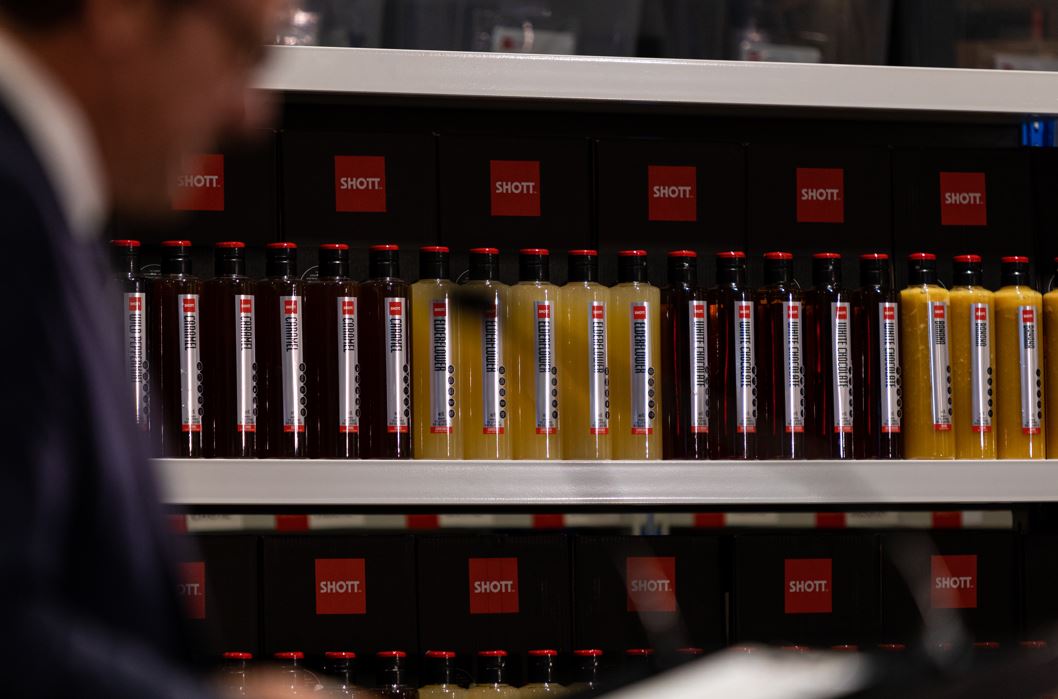
He said the business had pulled back from generating leads as it had reached capacity after seven years of double-digit and year-on-year growth. The business is profitable, booking something in the “teens of millions” in revenue.
With the new factory, its sales teams are expanding rapidly and its prospective markets have also expanded to 84 because it can meet those regulatory demands.
“This is an exciting time because you take a lot of uncertainty when you're first entering markets around different food rules and regulations. It’s taken us seven years to navigate that, and millions upon millions of investment, to ensure that all of our product meets all the different regulatory bodies' requirements around the world. Now we've got the manufacturing capacity coming online we can actually increase our growth … Scaling up is a hell of a lot easier than the world of regulation.”
It has about five people in a Korean office, looking after distribution in that market and that’s “one of our hubs”, Shearer said. It has hubs going into the UK this year, and the US and Australia.
The strength of its Korean presence may seem surprising, but Shearer said the Koreans do deals quickly, they have a dairy pool – lots of fresh milk – and it is the biggest coffee market per capita in the world. Unlike many other Asian nations, it is not a country of tea drinkers, he said.
The company is currently hiring in America, and it is also staffing the new plant. Shott has about 50 staff, with most of them in New Zealand.
What worker shortage?
It was currently on the hunt for manufacturing workers on top of sales and marketing roles overseas to meet the new demand it's expecting.
Shearer said the company didn’t hit any problems recruiting despite widespread reports of a crippling worker shortage. Shott had been paying above a living wage ($21.15 in 2019/20) since 2014. The company is a member of Sedex, which does ethical audits, and part of that membership means paying 25% above the minimum wage, Shearer said.
“Our starting rate is substantially higher than the minimum wage. Quite a few people have said to me: ‘It’s so hard to find people’. We’ve just managed to fill up our plant without realising [a worker shortage]. These are some of the benefits of treating people well.”
Along with its adherence to paying well, the company has also committed to reducing its environmental impact where it can. It will put solar panels on the roof of the new factory and it has its own water source. The new plant will make those familiar tall bottles from recycled plastic, not glass, as it does in its existing Wellington factory. It has hybrid cars, which it will shift to fully electric “once the infrastructure is in place”.
“Being part of an ethical standards certification means we have to constantly improve.”
Shearer said NZ standards were lagging the world by about a decade.
“That’s one good thing about doing do a lot of business up in the UK and Europe. They are further along than anyone in these spaces. So our businesses are being set up to meet international standards. And being treated fairly is the minimum we should be required to do as an employer.”
Waste not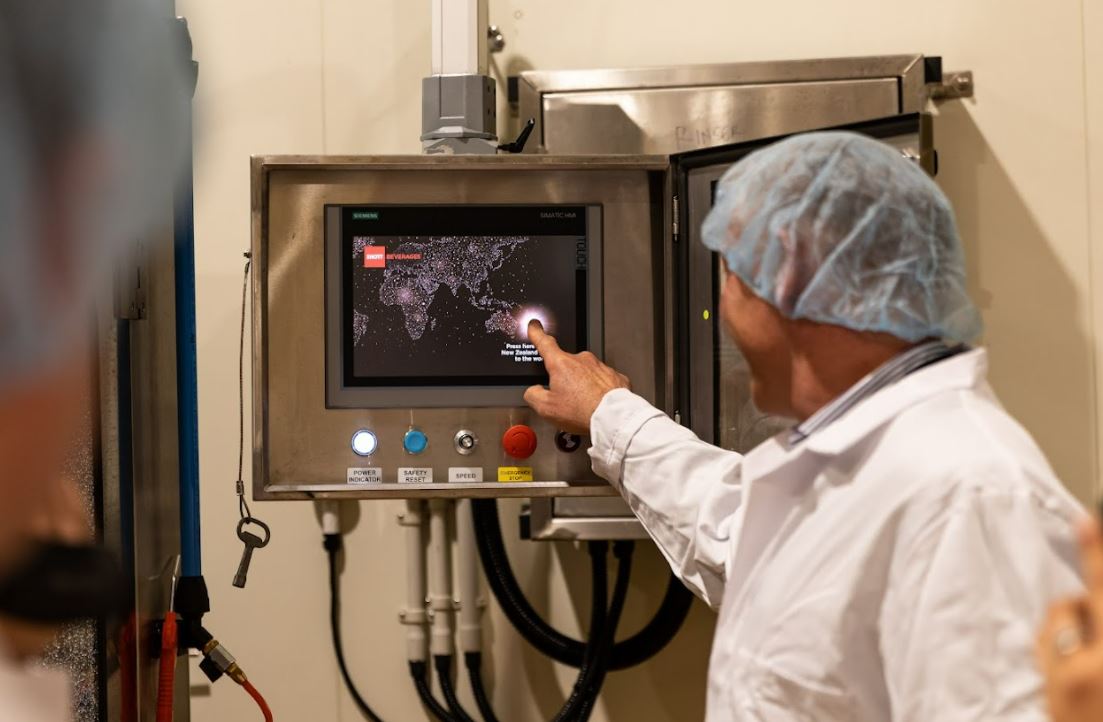
The company says about 85% of its total waste is recycled, including its main sources of waste – cardboard, plastic, and glass. Monthly reports are generated on energy consumption and the business is actively working to reduce its energy use.
It has an ethical sourcing policy based on the Ethical Trade Initiative and International Labour Organisation conventions.
Shearer said the company was currently funded by its existing shareholders through until 2024, but it would need to broaden its shareholder base eventually.
“It’s really just a matter of age and stage of our current shareholder group ... As we grow this, this business will evolve on the ownership side.”
He said there were no current plans to list or sell the company.
The brand was tied to NZ and its factories were in NZ but it probably would end up growing manufacturing outside of the country to keep working on its environmental footprint, Shearer said.
The company had used its covid downtime last year well, working on its direct-to-consumer business, accessing government support where it could, and now had a truly omnichannel business.
“For us, it's a time to create more jobs in this country. And keep doing what we're doing. We're effectively taking fruit that used to rot on the ground and turning it into a finished product ... The business is a lot broader than most people actually realise. It's just one of those quiet brands in the background you don't hear a lot about."


